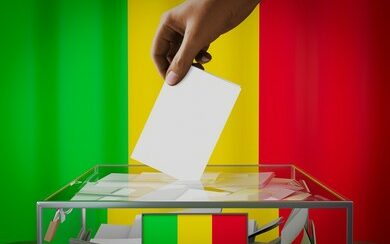Credit : Wikicommons
A few days before the solemn opening of the inter-Malian dialogue , the activities of political parties and associations are suspended. What consequences?
While the FAMa (Malian Armed Forces) track terrorists a few dozen kilometers from the garrison town of Kati (around 15 km from Bamako, where President Colonel Assimi Goïta resides), the fight against the darkness is far from be won by EDM (Énergie du Mali) and its customers (populations).
Rising prices of basic foodstuffs, youth unemployment (with the departure of NGOs), bipolarization of Malian society, the “Patriots” (supporters of military power) on one side and those who do not share their vision of Otherwise, the season of high heat does not seem well suited to awaken the Demons of disunity.
Dissolution period
While the inter-Malian dialogue is on everyone’s lips, a new decision divides Malian opinion. In a press release made public on Wednesday April 10, the Government of the Transition announced the “suspension of the activities of political parties and the political activities of associations until further notice for reasons of public order”, as indicated in the Ministry of Territorial Administration.
Read also: Ras Bath, the eternal return to the cell
This decision comes in a context of dissolution of opposition political movements and associations in the country. In addition to the ban on the Coordination of Movements, Associations and Sympathizers of Imam Mahmoud Dicko (CMAS), the Association of Pupils and Students of Mali (AEEM) was dissolved a few weeks ago.
Declaration of the grouping of political parties
HAC / Maison de la Presse
On March 31, dozens of political parties, united in a group, recalled the end of the transitional period. In question, the authorities had undertaken to do everything possible to organize the presidential elections before this date.
It should be remembered that the Transition began following the coup d’état of August 2020 over a period of 18 months. A few months after the arrival of Colonel Assimi Goïta to power in May 2021, this period was extended by 24 months, in application of the recommendations of the National Refoundation Conference (ANR), held in December 2021.
Decree relating to the duration of the transition
In addition to the political scene, the decision sparked a misunderstanding between two local press institutions. A few hours after the government’s announcement, the High Authority for Communication (HAC) called on information professionals to no longer cover the activities of political parties and associations.
A bitter swarm which pushed the Maison de la Presse to a vigorous reaction. Denouncing a position without “legal basis”, the Maison de la Presse “invites the media to remain standing, united and mobilized to defend the citizen’s right to information”, we can read in the organization’s press release.
Major players
Supporting the suspension of political activities, the Minister of Territorial Administration, Colonel Abdoulaye Maïga, considered that this consists of avoiding actions that could disrupt dialogue. “This measure has nothing to do with a dissolution [..] it is a legal action which leads to dissolution,” he clarified.
After the national consultations of 2020 and the National Refoundation Conference of 2021, the inter-Malian dialogue will be the third national forum in 4 years of military power. Not to mention the Inclusive National Dialogue (DNI), initiated a few months by the IBK government before the first coup d’état.
Read also: Dougou bé kak! (The situation is serious !)
At odds with Western partners and heavyweights in the region, such as Ivory Coast and Algeria, Kati’s colonels are not on good terms with the armed groups that signed the Algiers Agreement. It would therefore have been necessary to play the card of civil society and especially that of the political class to benefit from internal stability and find common solutions to the challenges of the moment.
Major players in governance in Mali, political parties and associations play an essential role during national dialogues and debates. In 2023, during campaigns and elections referendumsmany of them mobilized citizens to fulfill their civic duty.
